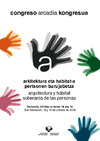Identificador persistente para citar o vincular este elemento:
https://accedacris.ulpgc.es/jspui/handle/10553/77958
| Campo DC | Valor | idioma |
|---|---|---|
| dc.contributor.author | Jiménez Campos, María | en_US |
| dc.contributor.author | López de Asiain Alberich, María | en_US |
| dc.contributor.author | López Sánchez, Antonio | en_US |
| dc.date.accessioned | 2021-03-08T13:09:48Z | - |
| dc.date.available | 2021-03-08T13:09:48Z | - |
| dc.date.issued | 2018 | en_US |
| dc.identifier.isbn | 978-84-1319-206-2 | en_US |
| dc.identifier.uri | https://accedacris.ulpgc.es/handle/10553/77958 | - |
| dc.description.abstract | Do you know that feeling when an isolated fact helps everything else on a journey make sense? All of this is about a story well told that had an impact on the right people. About how reality hits you and invites those who cannot deal with it to run away; and about how effort and stubbornness bring dreams closer to reality What we did not know in that first moment was that the best —and worst— of that story was everything that was about to come. The opportunity consisted on going to a jungle in Senegal to help finish the construction of a school. The experience has ended up being much more than that. Our first contact with the reality of cooperation returns to us, every single day, full of opposing feelings. After some time of chatting, discharging, and reflecting, we gathered this experience and put it together with the purpose of being more aware and at the same time helping make other groups of young people more aware of the opportunities and threats around us. Who is cooperating? How do they decide who is getting the aid? How much engagement is it in there? When should you stop? What happens behind the curtains? How far can personal interests reach? Likes and dis-likes of a cooperation project raises the issue about how an education based on personal achievement and individual problem solving should tackle matters that are based on cooperativeness, coordination, collaboration, and respect towards the social and cultural fields of the giver as well as that of the receiver. It tackles how to start working on conflict resolution among cooperation workers in order to learn how to cooperate Cooperation? Do we really know what it means? Are we willing to cooperate? And are we capable? | en_US |
| dc.description.abstract | ¿Sabes esa sensación cuándo un hecho aislado hace que el camino cobre sentido? Todo esto va de una historia bien contada que impactó a la gente correcta. De cómo la realidad choca e invita a huir a quien no puede con ella; y cómo el esfuerzo y la cabezonería acercan el sueño a la realidad. Lo que no sabíamos en ese primer momento es que lo mejor —y lo peor— de esa historia era todo lo que quedaba por venir. La oportunidad consistía en ir a una selva en Senegal para ayudar a acabar de construir una escuela. La experiencia está yendo mucho más allá. Nuestro primer contacto con la realidad de la cooperación nos devuelve, al día a día, repletos de sensaciones contrapuestas. Después de un tiempo de charla, desahogo y reflexión, recopilamos la experiencia con el objetivo de ser y hacer más conscientes, a los grupos jóvenes, de las oportunidades y las amenazas que nos rondan. ¿Quién coopera? ¿Cómo deciden quién recibe la ayuda? ¿Cuánta implicación hay? ¿Cuándo debes parar? ¿Qué hay detrás del telón? ¿Hasta dónde llegan los intereses personales? Amores y des-amores de un proyecto de cooperación plantea cómo una educación basada en los logros personales y la resolución de problemas individualmente debe abordar cuestiones cooperativas, coordinadas, colaborativas y respetuosas desde el ámbito sociocultural propio, además del destinatario. Trata cómo empezar a trabajar la resolución de conflictos entre cooperantes para poder aprender a cooperar. ¿Cooperación? ¿Realmente sabemos lo que significa? ¿Estamos dispuestos a cooperar? ¿Somos capaces? | en_US |
| dc.language | spa | en_US |
| dc.publisher | Universidad del País Vasco | en_US |
| dc.source | ARCADIA5: arquitectura y hábitat soberanía de las personas, p. 139-155 | en_US |
| dc.subject | 6201 Arquitectura | en_US |
| dc.subject.other | Cooperación | en_US |
| dc.subject.other | Reflexión | en_US |
| dc.subject.other | Experiencia | en_US |
| dc.subject.other | Sensaciones | en_US |
| dc.subject.other | Compromiso | en_US |
| dc.title | Reflexiones a debate. Amores y DES-amores de un proyecto de cooperación | en_US |
| dc.type | info:eu-repo/semantics/conferenceObject | en_US |
| dc.type | Conference proceedings | en_US |
| dc.relation.conference | V Congreso sobre Arquitectura y Cooperación al Desarrollo (ARCADIA) | en_US |
| dc.description.lastpage | 155 | en_US |
| dc.description.firstpage | 139 | en_US |
| dc.investigacion | Ingeniería y Arquitectura | en_US |
| dc.type2 | Actas de congresos | en_US |
| dc.utils.revision | Sí | en_US |
| dc.identifier.ulpgc | No | en_US |
| dc.contributor.buulpgc | BU-ARQ | en_US |
| item.grantfulltext | open | - |
| item.fulltext | Con texto completo | - |
| crisitem.event.eventsstartdate | 18-10-2018 | - |
| crisitem.event.eventsenddate | 20-10-2018 | - |
| crisitem.author.dept | Departamento de Arte, Ciudad y Territorio | - |
| crisitem.author.orcid | 0000-0001-9422-394X | - |
| crisitem.author.fullName | López De Asiain Alberich, María | - |
| Colección: | Actas de congresos | |
Visitas
50
actualizado el 11-ene-2026
Descargas
35
actualizado el 11-ene-2026
Google ScholarTM
Verifica
Altmetric
Comparte
Exporta metadatos
Los elementos en ULPGC accedaCRIS están protegidos por derechos de autor con todos los derechos reservados, a menos que se indique lo contrario.
